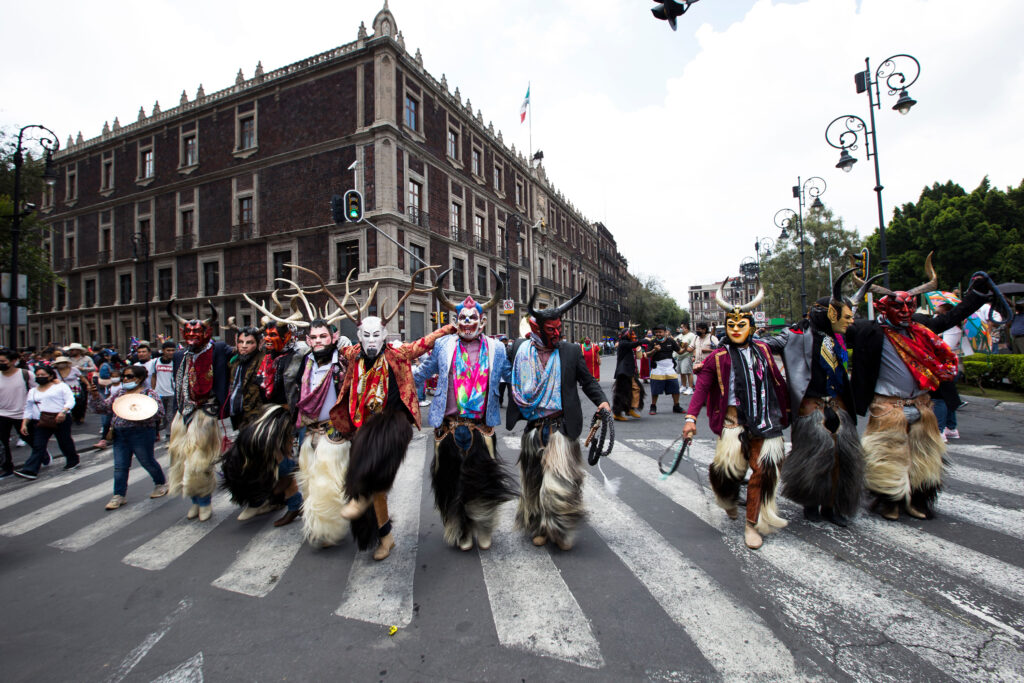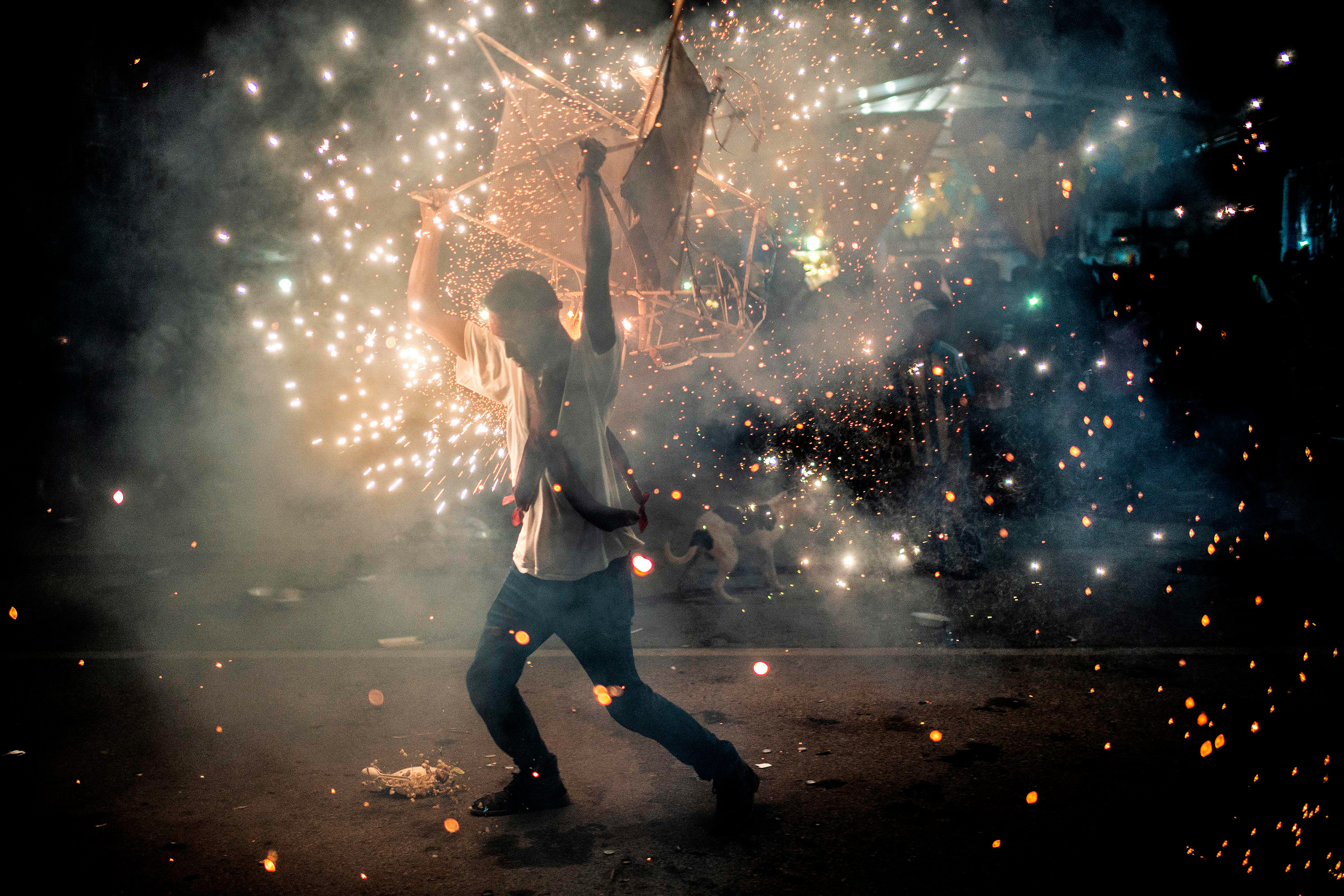Issue 43 of The Ideas Letter kicks off with the Mexican political theorist Tessy Schlosser, who proffers a measured and critical defense of identity politics. Schlosser seeks neither to defend nor to bury the contested concept; she acknowledges its limits and burdens, and argues for a more nuanced understanding how identity contests power.
Then follows the sharp pen of Sam Adler-Bell, best known as the co-host of the nonpareil Know Your Enemy podcast, which digs deep into foundational conservative ideas from a leftist perspective. Who better for Adler-Bell to assay than William F. Buckley and the brand-spanking-new, three-decades-in-the-making 1,000-page biography by Sam Tanenhaus.
We then bring back Evgeny Morozov, this time for a critical response to a recent Ideas Letter essay on neoliberal philosophy from the historian Quinn Slobodian. Morozov upends Slobodian’s arguments that changing metaphors define neoliberal thought, instead pointing to its consistencies over time.
Our curated section kicks off with a conversation between two seasoned observers of the Russian political scene: Marlene Laruelle and Masha Lipman. Echoing the brilliant Stephen Kotkin in her analysis, Laruelle seeks to understand how ideology constitutes the new Russian subject.
Next up is an interview with the political economist Vamsi Vakulabharanam on the long and winding road of inequality’s history in the People’s Republic of China. This is followed by an examination of the social history of analytical philosophy, a synopsis by philosopher Christoph Schuringa of his exciting new Verso book.
Writer E. Tammy Kim’s profound personal meditation on her mother, intergenerational responsibility, South Korea, and midlife is an essay not to be missed.
We conclude with another reflection, this time about opening ourselves to listening to non-human life through AI—in this case the life of whales. Yes, whales.
Our musical selection for Ideas Letter 43 comes from ET Mensah, known in Ghana as the “King of Highlife,” (1919–1996): It is the supremely lyrical composition “Day by Day.”
I will be in Accra next month and welcome musical recommendations!
—Leonard Benardo, senior vice president at the Open Society Foundations
Why Identity is Failing—and Can’t be Abandoned

Tessy Schlosser
The Ideas Letter
Essay
Schlosser argues that identity politics is not exhausted, as its critics claim, but instead that it continues to reckon with history, exclusion, and the unfinished work of liberation. Drawing on examples ranging from European Jews’ demands for rights in the 18th and 19th centuries, feminist movements, and Indigenous and Afro-descendant struggles in Mexico, she shows that identity politics has often demanded recognition for groups at the cost of subjecting themselves to oversimplification. Schlosser calls for a “humanism of friction”: a politics grounded not in sameness but in shared struggle and the porousness of identity itself.
“What is identity, really, if not a construct always in crisis? It is a language we inherit and reshape, a form imposed and reclaimed, a wound and a weave. Identity can dissolve in an instant and persist across generations. It lives in the flesh and in the name; in the rituals and the songs we don’t remember ever learning. And it carries even more than it holds: ancestral weight, imposed silence, collective memory. What would it mean to approach identity not as a problem that needs solving, but as something to consider with care and critique in the knowledge that it is too much and not enough?”
“A Practical Fanatic”

Sam Adler-Bell
The Ideas Letter
Essay
Tanenhaus’s long-awaited biography, Buckley: The Life and The Revolution that Changed America, is a sweeping and ambivalent portrait of the man who transformed American conservatism from a cranky fringe into a cultural force—without ever quite clarifying what conservatism meant. For Adler-Bell, William F. Buckley Jr. is less of a great thinker than a charismatic impresario of ideas, admired for his wit, flair, and loyalty, but also entangled in the contradictions that shaped the right after World War II.
“Buckley, for all his arrogance, was the rare history-making figure who succeeded by reckoning his own limitations. ‘The challenge,’ Buckley wrote of sailing, his other great passion, ‘lies in setting the sails as quickly as you know how, in trimming them as well as you know how; in handling the helm as well as you can; in getting as good a fix as you can; in devising the soundest and subtlest strategy given your own horizons…’ What Buckley lacked in pathos, and genius, he made up for in his acute sensitivity to these qualities in others. His gift was his febrile admiration, his boyish intensity of affection. It was in the flattering light of Bill Buckley’s admiration that so many men were moved to put their own genius in service of his cause. (It is for this reason, too, that Buckley was so pained by the apostasy of brilliant writers like Garry Wills, whose zeal for the cause wavered as their genius grew.)”
The Race That Never Ends
A Response to Quinn Slobodian

Evgeny Morozov
The Ideas Letter
Essay
In a recent Ideas Letter essay, Quinn Slobodian makes the case that evolving metaphors about neoliberalism—from the garden to the factory,—drive the narrative about it. In this response, Morozov argues that Slobodian misidentified which symbols actually structure neoliberal thought and practice. He argues that Friedrich Hayek’s thought never abandoned the language of emergence and complexity, and that Silicon Valley’s metaphors today—platforms, networks, ecosystems—are more aligned with Hayekian spontaneity than with top-down factory models. What truly unites neoliberal thinkers across generations is a Darwinian framework of global rivalry and capitalist mobilization that demands a constantly competitive acceleration—whether against the Soviets during the Cold War or China now.
“But which of the two processes—self-organization or cultivation—is more central to Hayek’s thought? For all their dialectical interrelatedness, I don’t think there’s much disagreement in today’s Hayek scholarship that it is the former. Self-organization captures his ontological and eternal — rather than political and contingent — commitments. And now that the Cold War is over, the Hayekians have no problem distancing themselves from the gardening state — or any state, for that matter — and celebrating the commons, civil society, and polycentricity. With no more central planners to defeat, their enthusiasm for gardening has also diminished: let a thousand polyps bloom — and in whatever institutional configurations!”
Ideology and Meaning-Making Under the Putin Regime
Interview with Marlene Laruelle
Maria Lipman
The New Books Network
Podcast
Laruelle, a historian and sociologist, explores the ideological foundations of the Putin regime, challenging simplistic portrayals of Russia. Her book Ideology and Meaning-Making Under the Putin Regime examines how ideology is actively produced and implemented in both Russian domestic and foreign policy. Situating Russia’s current politics within its broader intellectual and strategic traditions, the interview offers insight into how ideology helped pave the way for the war in Ukraine.
“…By meaning making, I really wanted to bring the idea that it’s not about propaganda. It’s not something that is purely opportunistic, done by a regime who doesn’t care at all about ideology and about the society and that just want to stay in power, which is a very current, very regular kind of widespread interpretation. It has that aspect, of course, but it’s much more complex than that. I think there was a genuine idea that we need to make sense of today’s Russia as it is now. It never existed with these boundaries, with these borders. It’s a new entity, born from the collapse of the Soviet Union. It had different historical representation, different territorial representation. We need to make sense. It’s really a nationhood process of trying to create the sense that will be shared by the population. So, it was really important for me to say, okay, it makes sense by the Russian authorities to create that ideological infrastructure. And I think I also wanted the meaning making aspect to say, it makes sense for us, external observer, to take and to read that very seriously and to take it not as a kind of fake news kind of propaganda, brainwashing things, but really to study it as a kind of something that tries to be a genuine construction, even if it has all the kind of regime security elements in the mind, in the back.”
Understanding Inequality In China
An Interview With Vamsi Vakulabharanam
C. J. Polychroniou
Global Policy Journal
Interview
In this wide-ranging interview, the political economist Vamsi Vakulabharanam analyzes the evolution of inequality in China from the Mao era to post-1978 market reforms, arguing that China has transitioned from being one of the most equal societies in the world to one characterized by a deep class-based inequality that compares to that in the United States. He attributes rising inequality to regional disparities, urban-rural gaps, class divisions, and the gradual adoption of capitalist practices.
“The official stance of the Chinese Communist Party on inequality has not changed since the time of reforms. Deng Xiaoping’s ‘Let some people and some regions get rich first’ dictum affords a certain freedom-in-the-concrete for experimenting with policies that are deeply capitalist in nature. The real question is whether the emergence and entrenchment of capitalist class structures in the larger society changes the complexion of that dictum and creates a new one—in order to help those that did not get rich first, let there be another people’s revolution. Since the party is inspired by Marx, I am sure that its leaders are not unaware of the fact that the economic processes they have unleashed perpetuate class-based inequalities.”
On Writing a Social History of Analytic Philosophy
Christoph Schuringa
Verso
Blog Post
Schuringa challenges the notion that analytic philosophy is ahistorical, apolitical, and purely logical by situating its development squarely within the social and ideological foundations of its time, particularly to post-World War II in the United States. Analytic philosophy masks its liberal bourgeois roots and self-reinforces through a closed system of shared intuitions, resisting engagement with alternative worldviews or radical critiques.
“To subject analytic philosophy to a social history is to produce consternation and confusion among its adherents. One primary source of analytic philosophers’ frustration is that they just cannot imagine what a social history might be, other than a crude causal explanation of what seem to be intellectually respectable ideas in terms of hidden influences. History does not work like that, and my book does not take any such approach. But their presuppositions mean that it will remain largely illegible for them. Again, they will reach for the defence that surely the alleged unmasking of supposedly brute social forces applies just as much to things other than analytic philosophy, and especially to its bête noire, ‘continental philosophy’. Or it will be claimed that the treatment offered does not capture every single case of analytic philosophy. Indeed, the rebuttal will be advanced that there is, after all, no such thing as analytic philosophy.”
Creature of the Late Afternoon
Three Generations: Dead, Old, and Middle-aged
E. Tammy Kim
n+1
Essay
Kim reflects on filial devotion, aging, and the complexities of midlife through the lens of her deepening relationship with her immigrant mother. She recounts the emotional excavation of her grandparents’ graves in South Korea, her evolving understanding of family, and her ambivalence toward traditional milestones like motherhood. The essay is a meditation on memory, care, and the urgency of creating meaning—not through children or marriage, but through writing, presence, and connection across generations.
“My family is still the one I was born into: mother, father, and brother, all of them alive and well — the ultimate luck. Many friends have already lost their parents or slipped into sandwich-generation duties, raising their kids while scrambling for elder care. Others of us have traded reproduction for something like filial piety. I can think of quite a few childless friends who have moved to be near a parent or had a parent move in with them. Midlife for them — and for me — is an open-faced sandwich. The defining event of my adulthood will not be birth or adoption, but the deaths of my parents, especially my mom.”
The Ethics of Listening to Whales
A Conversation With James Bridle, Rebecca Giggs, and César Rodríguez-Garavito
Emmanuel Vaughan-Lee
Emergence Magazine
Podcast
The conversation explores the ethical, ecological, and legal implications of using AI to decode whale communication, raising questions about what it means to truly listen to non-human life. As participants in the discussion acknowledge that the potential to translate whale language could shift how humans perceive animal intelligence and expand environmental protections, they emphasize that care, reciprocity, and humility—rather than domination or instrumentalization—must guide such efforts. Ultimately, meaningful interspecies connection may lie not in speaking to whales but in learning how to listen with respect, responsibility, and restraint.
César Rodríguez-Garavito, Earth rights scholar, field lawyer, and the founding director of the More-Than-Human Rights (MOTH) Project at NYU School of Law, argues that “going forward, the question is, well, what if we understood the content of those vocalizations. The argument that we make in that paper is that, that would help us substantiate or reinforce findings that we already have on the features of whale life, such as socialization and cultural interactions. There’s already pretty solid science showing that whale pods behave in culturally specific ways: they eat certain food, they also use certain clicks, they have dialects. And that together with understanding the content of their vocalizations would, I would say, help us make a strong case for the protection of their social lives as opposed to only their individual lives.”
